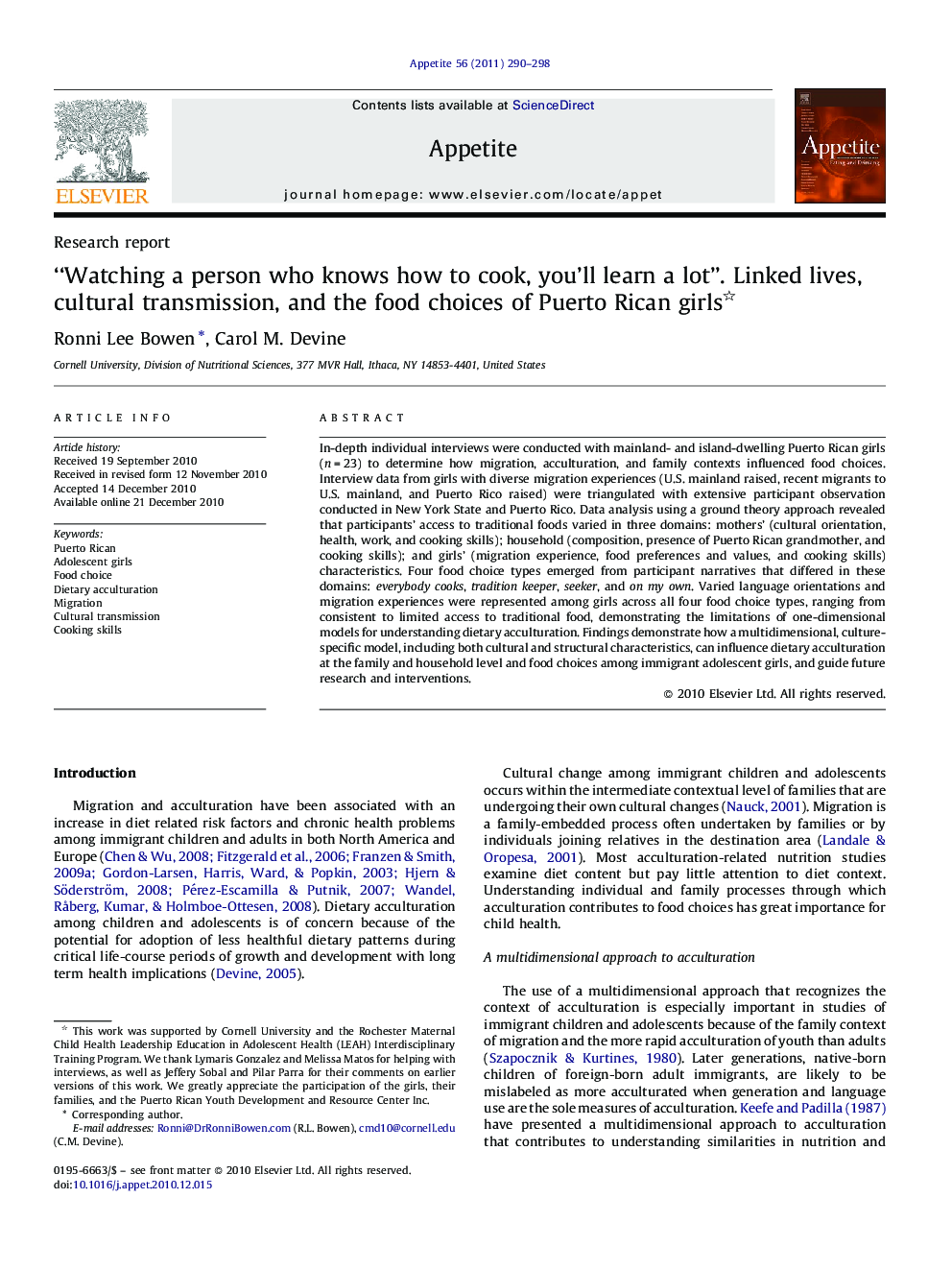| Article ID | Journal | Published Year | Pages | File Type |
|---|---|---|---|---|
| 939841 | Appetite | 2011 | 9 Pages |
In-depth individual interviews were conducted with mainland- and island-dwelling Puerto Rican girls (n = 23) to determine how migration, acculturation, and family contexts influenced food choices. Interview data from girls with diverse migration experiences (U.S. mainland raised, recent migrants to U.S. mainland, and Puerto Rico raised) were triangulated with extensive participant observation conducted in New York State and Puerto Rico. Data analysis using a ground theory approach revealed that participants’ access to traditional foods varied in three domains: mothers’ (cultural orientation, health, work, and cooking skills); household (composition, presence of Puerto Rican grandmother, and cooking skills); and girls’ (migration experience, food preferences and values, and cooking skills) characteristics. Four food choice types emerged from participant narratives that differed in these domains: everybody cooks, tradition keeper, seeker, and on my own. Varied language orientations and migration experiences were represented among girls across all four food choice types, ranging from consistent to limited access to traditional food, demonstrating the limitations of one-dimensional models for understanding dietary acculturation. Findings demonstrate how a multidimensional, culture-specific model, including both cultural and structural characteristics, can influence dietary acculturation at the family and household level and food choices among immigrant adolescent girls, and guide future research and interventions.
